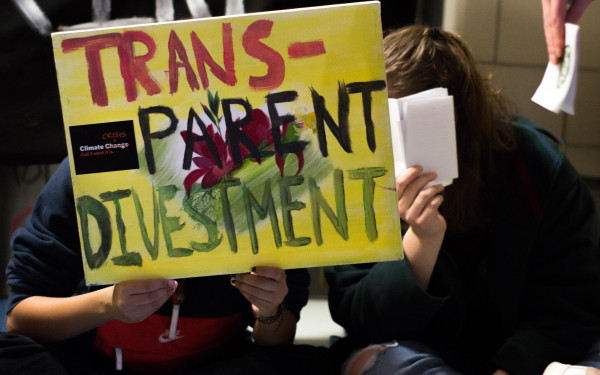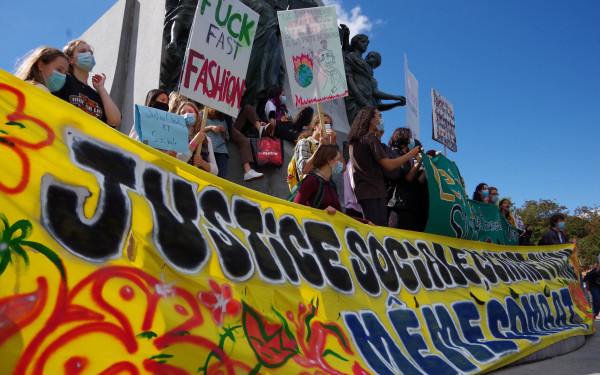Concordia President Cancels Class for the Climate Strike
Student Groups Call Decision a “Power Move”
Interim President Graham Carr notified students by email last week that Friday classes will be cancelled between 11:45 a.m. and 4 p.m. due to the planned global climate strike.
“Climate change is one of the most significant challenges of our time and an important priority for the entire Concordia community,” Carr wrote in the email.
On strike day, many students and other Montrealers are expected to take to the streets for a climate march led by 16-year-old Swedish activist Greta Thunberg—who started the climate strike movement last year.
The march will leave at noon from the Georges-Étienne Cartier monument on Mont-Royal, a place that has frequently been used as a departure point for climate marches in the past year.
Carr added that his decision to cancel classes was “in keeping with Concordia’s ongoing engagement in sustainability efforts and in recognition of the unique importance of the climate march.”
Some students welcomed Carr’s announcement, but others were skeptical.
Alex Leonard, a member of student group Divest Concordia, said that Carr’s decision to cancel classes is “a power move.”
Divest Concordia has been pressuring the university to remove their investments from the top 200 publicly traded fossil fuel companies since 2013.
The university has not yet divested.
“In regards to Concordia’s duty to divest, the new president of Concordia is diverting attention away from current investments in the fossil fuel industry,” Leonard said. “He is relieving pressure that students could have brought on the institution through striking.”
Members of Concordia’s branch of La planète s’invite à l’université, the student group organizing the climate movement across universities in Quebec, spent the summer and the first weeks of class planning what they thought would be a strike.
LPSU has four province-wide demands: the government should require ecological and scientifically accurate education at all levels, follow the Intergovernmental Panel on Climate Change’s recommendations to limit warming to 1.5 degrees Celsius, divest from fossil fuel industries, and respect the treaties and rights of Indigenous peoples.
LPSU Concordia plans on finalizing Concordia-specific demands this week.
Madeline Karcher, an organizer with LPSU Concordia, said Carr’s email came as a surprise.
“There will be more people on the streets and that’s all that matters in the end,” she said, but added that it meant that students would have a much more difficult time officially striking.
“If anything it makes us feel more pressure to go on official strike coming up,” Karcher said. “We’ll test the limit to see what the university actually supports.”
Another strike day will likely take place next semester, but the date has not yet been announced.




_600_375_90_s_c1.jpg)
_600_375_90_s_c1.jpg)

